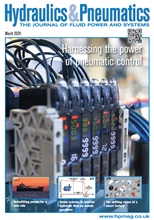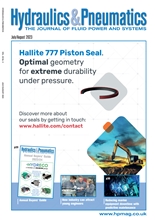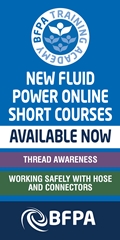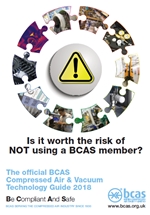Understanding the PSSR
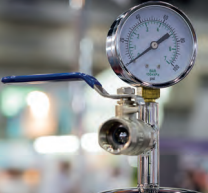
The Pressure Systems Safety Regulations (S.I. 2000 No 128) (PSSR) relate to pressure systems for use at work and the risk to health and safety. Vanda Jones, Executive Director at the British Compressed Air Society (BCAS) outlines the responsibilities as an owner or operator
Users or operators of a compressed air (pressure) system, you will be keen to understand their obligations, especially since the regulations are designed to prevent serious injury from the hazard of stored energy as a result of the failure of a pressure system or one of its component parts.
Pressure System Safety Regulations (PSSR) - The basics
The HSE states that ‘everybody operating, installing, maintaining, repairing, inspecting and testing pressure equipment should have the necessary skills and knowledge to carry out their job safely’, meaning suitable training is essential.
A written scheme of examination is required for most pressure systems, which should be drawn up (or certified as suitable) by a competent person – and the system should not be operated or hired out until the scheme is in place and the system fully examined.
The terminology
The PSSR defines two distinct categories of personnel that may be responsible for pressure equipment- a user and an owner.
A ‘user’ refers to the person or business who has control of the operation of the pressure system or such a vessel. Once a pressure system is installed, the primary duty for compliance rests with the user.
An ‘owner’ refers to the person who owns the pressure system or his/her agent.
The PSSR also places duties on designers, manufacturers or any person who supplies equipment intended to be part of a pressure system. This is to ensure that it is fit for purpose, so as to prevent danger. As a user or owner, these issues should have already been addressed by your service provider and the equipment should be fully compliant.
Your obligations The Pressure System Safety Regulations define the legal responsibilities of users and owners, and these are many and varied.
For example, before a system can be designed or installed it is the user’s or operator’s responsibility to ensure that the safe operating limits are specified (and that they are subsequently reviewed and kept up to date).
This is where it is advisable to consult with a proven service provider, such as a verified BCAS member - who can help to determine which of the regulations apply to the pressure equipment subsequently provided.
In addition, the user of an installed system and the owner of a mobile system must ensure that the system is kept properly maintained and in good repair, to prevent danger.
Written Scheme of Examination
A key component of the PSSR is that a Written Scheme of Examination (WSE) is required.
-
Smart Manufacturing & Engineering Week
05 - 06 June, 2024
NEC, Birmingham -
HILLHEAD 2024
25 June, 2024, 9:00 - 27 June, 2024, 16:00
Hillhead Quarry, Buxton, Derbyshire UK




